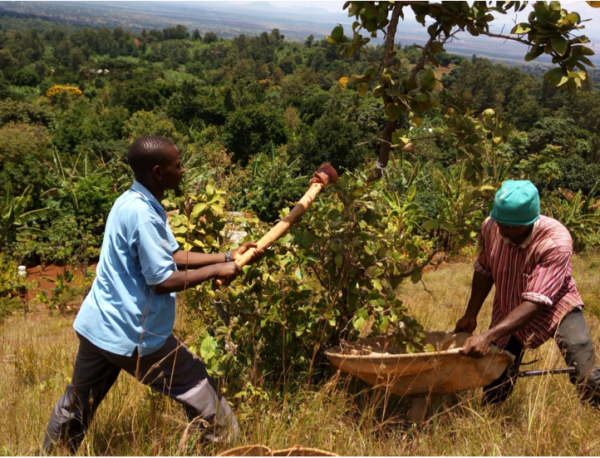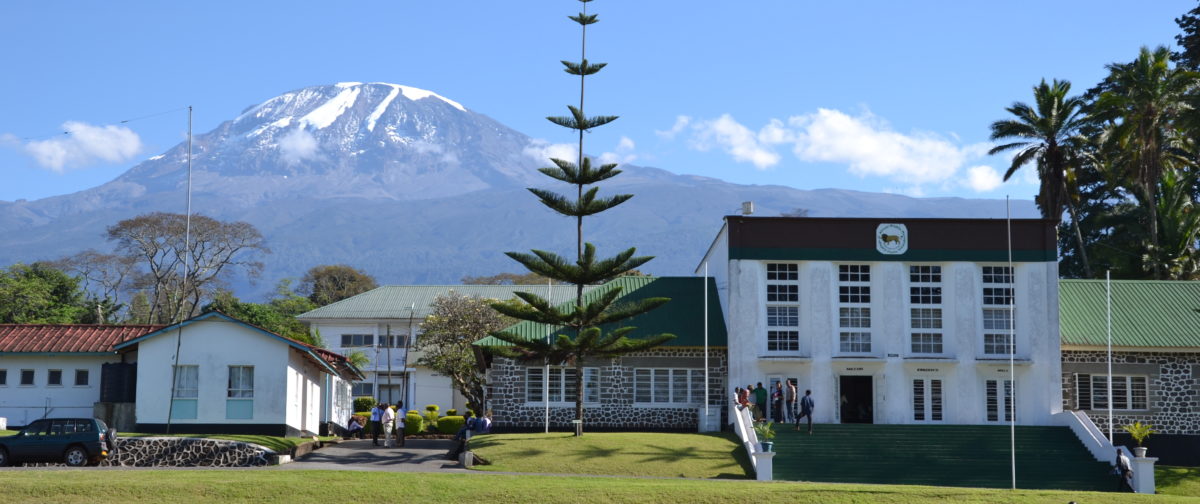SEATTLE, Washington – 31 October 2017 –The JRS Biodiversity Foundation is grateful for the opportunity to support the efforts of the College of African Wildlife Management (CAWM), Mweka to develop and implement a monitoring program for Tanzanian pollinator species. This project, led by Mr. Henry Njovu, will represent an important contribution to understanding the diversity, abundance, and distribution of bee pollinator species in Tanzania.
Pollination is a critical plant‐animal interaction that maintains ecosystem health and function, facilitates plant reproduction, and improves crop production and human welfare. In Tanzania, most people rely on agricultural activities for their livelihoods, and a majority of cash and food crops rely on insect pollination. Of these insects, bees are the most important pollinator.

There is an increasing global concern regarding decline of pollinator population caused by land use intensification, climate change, and poor pollinator management. However, lack of empirical data on pollinator population status limits the potential for appropriate actions to halt their decline and impedes identification of links between population declines and potential drivers of such changes. In Tanzania, the situation is exacerbated by a combination of high pollinator diversity with lack of taxonomic expertise and financial resources. Furthermore, although agriculture is vitally important in Tanzania, awareness of pollinator services and application, and their importance in improving agricultural crop productivity, is either very scant or altogether lacking.
This project will help to address this gap by developing a baseline understanding of the status and trends of bee pollinators and their interactions with plant communities for Tanzania. The team predicts that this will allow for the development of more sophisticated analyses of bee foraging specialization, seasonal trends in bee species abundance and composition, and their response to climate and land use changes. Greater knowledge will allow for more informed conservation and management decisions. Additionally, through outreach and scientific publications, the team hopes to provide education on the importance of pollination and the requirements for healthy pollinator communities.
The JRS Biodiversity Foundation is the only conservation donor dedicated to increasing access to biodiversity data and information in sub-Saharan Africa. The grant award to CAWM, Mweka is part of a growing constellation of projects in East Africa including awards to the National Museums of Kenya and the Royal Museum of Central Africa that aim to increase access to knowledge regarding pollinator biodiversity and ecosystem services.
See “College of African Wildlife Management, Mweka (2017) – Pollinator Monitoring Program in Tanzania”
About the JRS Biodiversity Foundation – The mission of the JRS Biodiversity Foundation is to enhance knowledge and promote the understanding of biological diversity for the benefit and sustainability of life on earth. Founded in 2004, the JRS Biodiversity Foundation supports biodiversity data and knowledge tools that are used to preserve biodiversity in developing economies where biodiversity is most threatened. The foundation has awarded $16M in grants since 2007. Visit online at https://jrsbiodiversity.org.
About the College of African Wildlife Management, Mweka – The College of African Wildlife Management was established in 1963 as a pioneer institution for the training of African wildlife managers. The College has led the field of wildlife management training in Africa for 42 years, receiving a number of awards and accolades including the prestigious UNEP Sasakawa Environment Prize and being declared a centre of excellence as a Wildlife Training Institute by the East African Community. Visit online at http://mwekawildlife.ac.tz/.
Click here to download this announcement.
JRS Contact: Don S. Doering, Executive Director, ddoering@jrsbiodiversity.org
CAWMM Contact: Dr. Henry Njovu Assistant Lecturer, hnjovu@mwekawildlife.ac.tz

